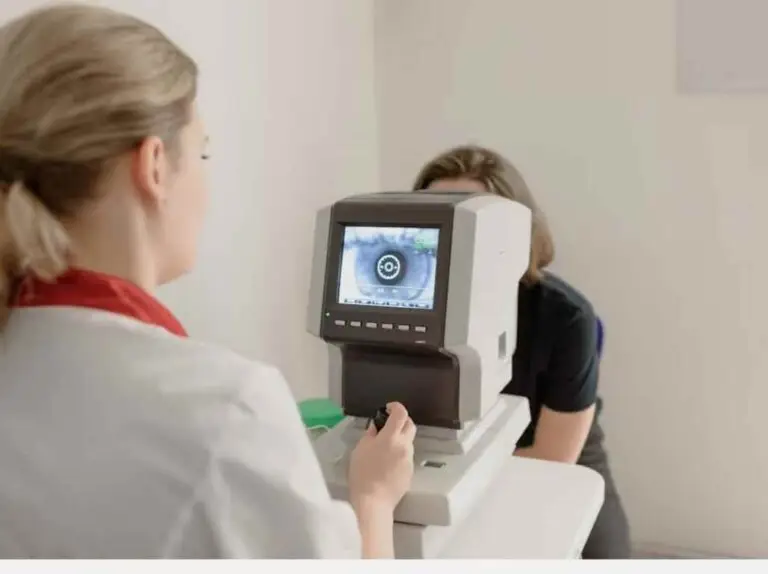Know This Before Getting Laser Eye Surgery in Your 50s
Laser eye surgery has gained popularity as a solution for vision correction and enhanced eye health, providing liberation from glasses and contact lenses. For individuals in their 50s considering this procedure, there are several important factors to consider to ensure the best possible outcome.
Understanding these elements can help set realistic expectations and prepare you for the journey ahead.
Understand the Types Of Laser Eye Surgeries
Firstly, it is crucial to understand the types of laser eye surgery available and which one might be suitable for your specific needs. The two most frequently performed procedures in this regard include PRK and LASIK.
According to the world-class ophthalmologists at NW Cornea Institute, LASIK entails forming a flap in the cornea to reshape the underlying tissue. This reshaping is done with the help of a medical laser. PRK, in contrast, is a procedure where the surgeon will reshape the surface of the cornea without creating a flap.
According to Mayo Clinic, LASIK surgery typically takes less than 30 minutes. PRK, however, will take only 10 to 15 minutes per eye. Consulting with an experienced ophthalmologist who can evaluate your eye health and recommend the best procedure for you is essential.
Ensuring Stable Vision Prescription
Another crucial factor is the stability of your vision prescription. Before undergoing laser eye surgery, it is crucial to have a stable vision prescription for at least one year.
Vision changes can occur due to various factors, including health conditions such as diabetes or medications that affect eyesight. If your prescription is still changing, it may be wise to delay the surgery until your vision stabilizes.
This ensures long-lasting results from the surgery, reducing the necessity for further corrective procedures in the future.
Before Getting Laser Eye Surgery Think About Age-Related Vision Changes
According to Cleveland Clinic, as you reach your 50s, presbyopia, or age-related farsightedness, becomes more prominent. This condition affects your ability to see objects up close and typically requires reading glasses or bifocals.
Laser eye surgery can correct distance vision effectively, but it does not eliminate the need for reading glasses for presbyopia. However, there are procedures like monovision LASIK, where one eye is corrected for distance and another for near vision, which can help manage presbyopia.
Discuss your vision needs and expectations with multiple ophthalmologists if needed. Their advice can help determine the most suitable approach for your lifestyle. Also, to get world-class eye care, you must work with the best ophthalmologists you can find, no matter how expensive they might get.
Assess Your Overall Eye Health Before Getting Laser Eye Surgery
Your overall eye health plays a significant role in the success of laser eye surgery. Conditions such as dry eye syndrome, cataracts, glaucoma, or corneal diseases can impact both your eligibility for the surgery and its outcome. Comprehensive preoperative examinations by eye doctors are essential to identify and address any underlying conditions before proceeding with the surgery.
For instance, managing dry eye syndrome is crucial as it can affect the healing process and the quality of your vision post-surgery.
Setting Realistic Expectations For Laser Eye Surgery
Lastly, it is essential to have realistic expectations about the outcomes of laser eye surgery. Many people end up getting 20/20 vision after they are done with the surgery. That being said, results can vary based on individual factors such as age, the degree of correction needed, and pre-existing eye conditions.
According to Healthline, laser eye surgery can significantly improve your vision. However, this type of eye surgery may not provide perfect vision for everyone. Understanding that you might still need glasses for certain activities, like reading, can help you maintain a positive outlook on the results.
Frequently Asked Questions About Laser Eye Surgery (FAQs)
Is laser eye surgery temporary or permanent?
Laser eye surgery is typically permanent, although vision changes can occur over time due to aging or other factors. Regular check-ups are recommended to monitor eye health post-surgery.
Is laser eye surgery painful?
Laser eye surgery is usually not painful due to numbing eye drops. Patients might experience slight pressure during the procedure and mild discomfort afterward.
Who Shouldn’t Have Laser Eye Surgery
People with severe dry eyes, thin corneas, or certain medical conditions like diabetes are not suitable for laser eye surgery. A thorough eye examination determines eligibility.
In conclusion, preparing for laser eye surgery in your 50s involves a comprehensive understanding of the procedure. From managing expectations to choosing a good surgeon, everything influences the success of the surgery. Considering these factors will assist in making a well-informed decision and increase the likelihood of a successful outcome with laser eye surgery.
9 Common Mental Health Challenges
Stop Suffering: 8 Tips For Overcoming Depression
Mindfulness-Based Interventions





















